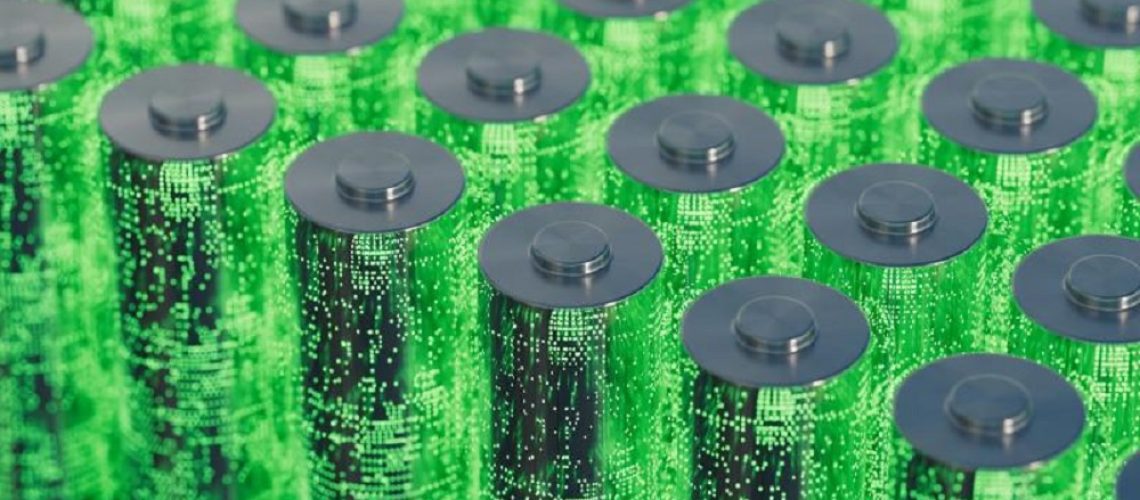It’s been a jubilant couple of weeks in Washington, DC, with everyone from clean energy developers to environmental advocates to labor unions celebrating the passage of the landmark climate provisions in the Inflation Reduction Act. There’s much to celebrate: America is finally joining the rest of the developed world in setting ambitious carbon pollution reduction goals, putting real money behind it.
Billions of dollars are flowing toward all aspects of the energy transition, from production to infrastructure. Soon America will move away from dirty fossil fuels and electrify everything. Limitless clean electricity from solar and wind will flood the grid, straight into our electric cars, forklifts, battery storage systems and smartphones.
Except there’s a big problem. The plan to electrify everything relies on lithium batteries to store all this clean energy. The world’s largest lithium sources can’t be cost effectively purified to meet the growing demand. Purifying lithium so that it’s usable in, say, electric vehicle batteries, costs a fortune. The lithium battery production bottleneck will block the adoption of 350 million electric vehicles by 2040 unless supply chain constraints are removed.
I’ve spent over two decades in the chemical, energy, and automotive sectors, watching battery storage development ramp up in fits and starts. I’ve tracked lithium availability, public policy, and the price of gasoline. The move away from fossil fuels to electric is inevitable. But there was one critical question: How can we unleash lithium, getting it from more sources and refining it in more places?
A snapshot of lithium production is that the mineral can be extracted anywhere in the world – from brines found deep underground or on flood plains, from rock, clay, or batteries that can be recycled. That lithium, however, needs to be refined into high-quality lithium hydroxide and carbonate, and 80 percent of that refinement happens in Asia, with China accounting for more than half of that production.
The carbon footprint made by transporting lithium to and from Asia in order to make an eco-friendly vehicle is ironic. Trade tensions between the U.S. and China makes the lithium hydroxide and carbonate supply unreliable, not to mention the constant COVID-related shutdowns in China that continue to rock global supply. And the cost to North American manufacturers? Through the roof. With money pouring into electric vehicle manufacturing, demand for battery-grade lithium will further outstrip supply. In fact, Benchmark Mineral Intelligence forecasts the lithium supply gap to be 725kt by 2040 in North America and Europe, enough to hold back 350 million electric vehicles.
The industries that depend on lithium batteries are about to hit a brick wall, but we know how to avoid it:
Unlock lithium at its source. More than 60% of Earth’s lithium is in brines, which has been mostly inaccessible until now. We have developed a way to extract that lithium so it can compete with lithium from other sources, at even lower prices.
Decentralize lithium refinement. We must refine lithium on site of any manufacturer that needs it. We must be able to utilize lithium from any source. Whether you’re mining lithium or making cars or batteries, if you are redlining on site, you no longer need to pay to ship the mineral around the world; it can happen right there on your property. Small- and mid-sized lithium producers and extractors would have an affordable option to refine lithium on their own. Geopolitical risks are minimized, and lithium refinement costs from brine feedstocks would be slashed by 40 percent.
Eliminate waste. If an electrochemical refinement process was used onsite, as opposed to the chemical phase separation method used in Asia today, the byproducts of that lithium refinement process would be hydrochloric acid and sulfuric acid, which can be used to extract more lithium. Loop closed.
Defenders of gasoline-powered vehicles claim that the relics of internal combustion will end up in landfills, and that the processing of batteries creates lots of pollution and waste. But every successful industry has had to overcome significant roadblocks; we can locate alongside battery recyclers to efficiently and economically refine lithium from recycled batteries, which creates a closed loop battery value chain and a more sustainable energy source. In the interest of clean air and national security, we must remove as many inefficiencies from lithium battery production as possible. Until then, President Biden’s vision for the clean energy transition won’t live up to its potential.
Jose Francisco Velasco Davis is VP of Commercialization at Mangrove Lithium. He has 20 years of experience in the chemicals, battery and automotive industries where he has helped companies meet supply chain, financial and environmental goals.



